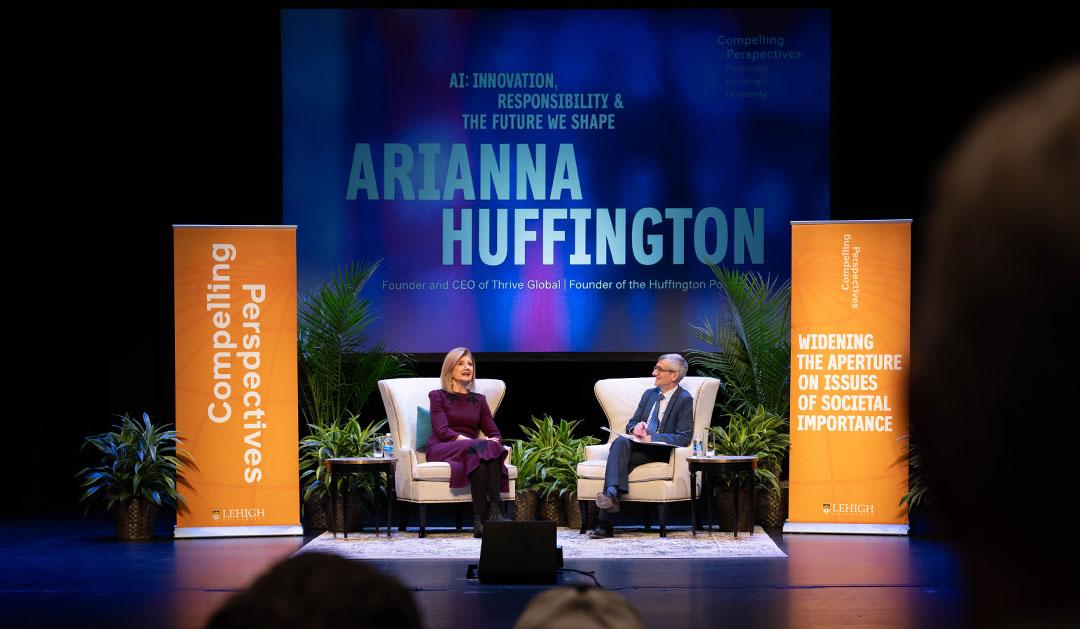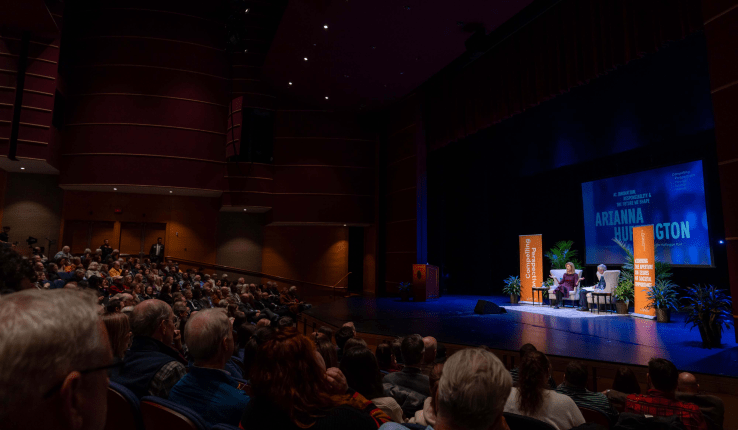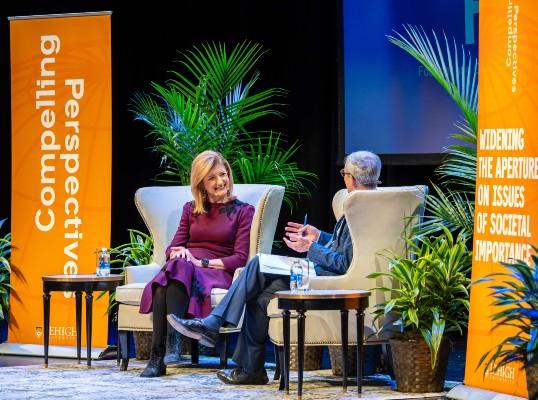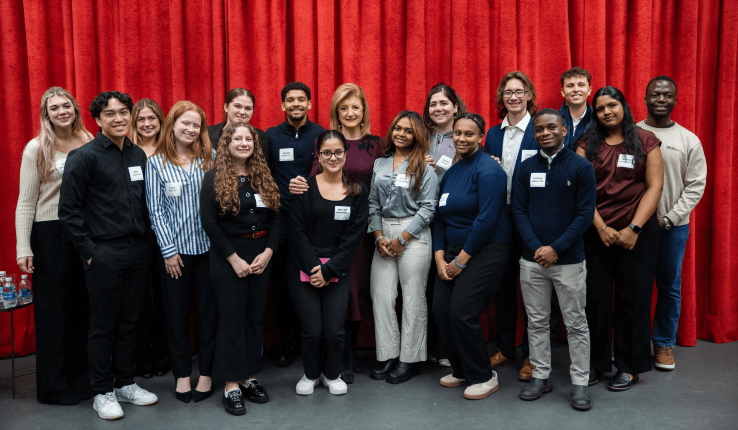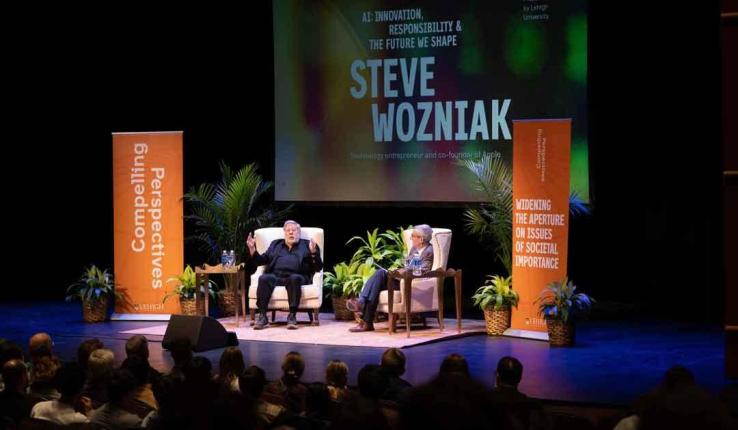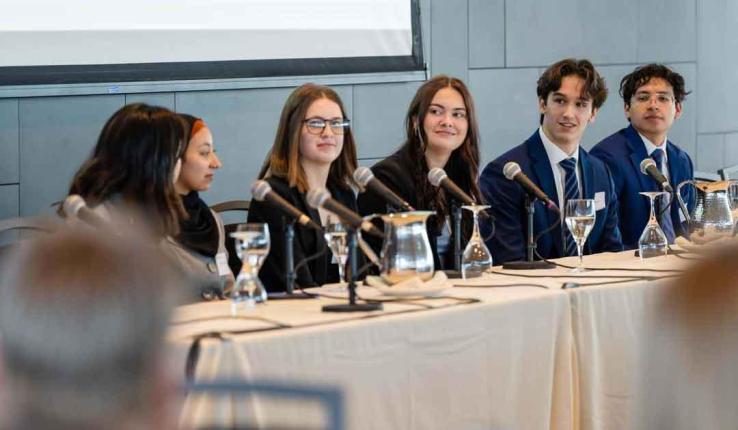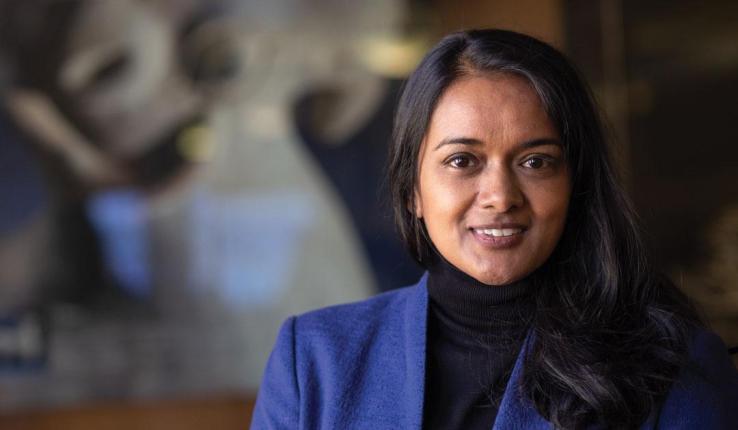As students asked nearly a dozen questions, Huffington touched upon many of the topics she’d discuss with Helble, but encouraged the students to take advantage of the intimate setting by disagreeing and interrupting to make the session more interactive.
The first question, from a student studying political science and health, medicine and society, asked Huffington how students can learn to navigate AI generated content critically, especially when it's getting harder to tell what's real.
“AI is changing the way we research, the way we write,” Huffington said. “I feel profoundly that it can never replace human creativity, human wisdom. I like to say that AI can keep intelligence, we keep wisdom. We talk about AI becoming more intelligent than humans, it will definitely not become wiser.”
Huffington said she sees AI as augmenting human capabilities, not replacing humans, who have consciousness, soul and spirit.
“Whether you're an atheist or have a religious and spiritual perspective, there is something about humanity that's beyond our IQ, beyond our material existence, and it's impossible to really look at life and history without taking that into account.”
The role corporations play when it comes to AI was discussed multiple times with one student asking if corporations will prioritize human good over money while using AI and another wondering how it can be ensured that large corporations are creating best practice policies so no communities are left behind as AI growth continues.
Huffington acknowledged companies will base decisions on profits and shareholder interests, but she believes it’s possible for corporations to make money and do good at the same time. She also said people aren’t powerless as AI expands, using communities across a number of states that have pushed back and rejected data center construction as an example.
“People are expressing their discontent,” Huffington said. “One of the problems is that we have been focusing so much on all the amazing things AI can do, we're not paying enough attention to the costs, whether it's electricity costs or community costs. … Companies, as we saw from Dario [Amodei] at Anthropic, have a big responsibility.”
Next Up
Lehigh is featuring two more guests this academic year as part of its Compelling Perspectives series.
On December 4, U.S. Senator Dave McCormick will visit the university to discuss the government's critical role in supporting artificial intelligence and innovation.
Steve Wozniak, tech entrepreneur and co-founder of Apple, will be Lehigh’s third speaker on Jan. 29, 2026. His talk will focus on the evolving landscape of AI, discussing its long-term benefits and impacts.
Both events are free and open to the public, however, advance registration is required and space is limited.


